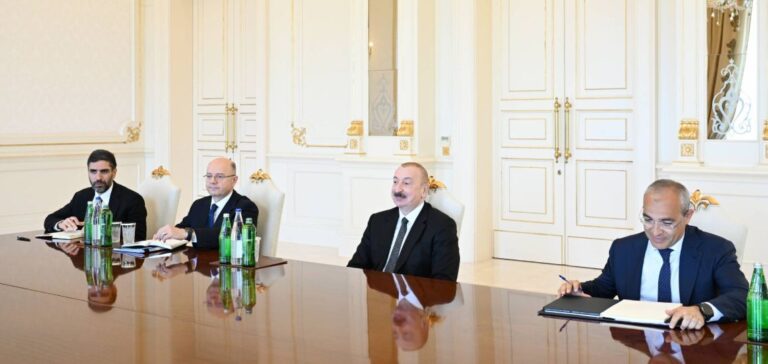ExxonMobil Corporation has announced the signing of a memorandum of understanding with the State Oil Company of the Azerbaijan Republic (Socar) to develop unconventional oil and gas resources in an onshore region of the country. The agreement focuses on the Ganja-Yevlakh-Aghjabadi area, located in central Azerbaijan, where both partners aim to unlock what the US major describes as “potential prolific value”.
The signing follows a meeting in Baku between John Ardill, ExxonMobil Vice President for Exploration and Production, and Azerbaijani President Ilham Aliyev. This collaboration builds on ExxonMobil’s long-standing engagement in the country’s energy sector, where it already holds stakes in the offshore ACG (Azeri-Chirag-Gunashli) fields and the Baku-Tbilisi-Ceyhan crude oil pipeline.
A region with a long history of development
Socar is the main operator of Azerbaijan’s onshore oil production, with some fields dating back to the 19th century. In recent years, the state company has committed to identifying and exploiting unconventional deposits within its territory. A geological study conducted by Socar in 2021 indicated that exploration had taken place in the Yevlakh-Aghjabadi depression for over 90 years, revealing complex geological structures in Meso-Cenozoic sediments.
ExxonMobil stated that this memorandum marks a significant first step in the collaboration between the two companies. “We look forward to bringing to this partnership our leading-edge technology and execution capability in unconventional resource development,” a spokesperson for the company told Platts, a publication of S&P Global Commodity Insights.
Regional energy context
Azerbaijan remains a strategic supplier of crude oil and natural gas to European markets. The Azeri Light crude grade, produced mainly at the ACG offshore complex operated by British Petroleum (BP), is valued for its ability to yield middle distillates such as jet fuel, gasoline, and diesel. It was recently assessed at a premium of $1.60/barrel to Dated Brent, according to the latest evaluations by Platts.
In the natural gas segment, the offshore Shah Deniz field, also operated by BP, is a major supply source for the Southern Gas Corridor to Europe. In addition to its oil project commitments, ExxonMobil also holds interests in the country’s strategic export infrastructure.






















